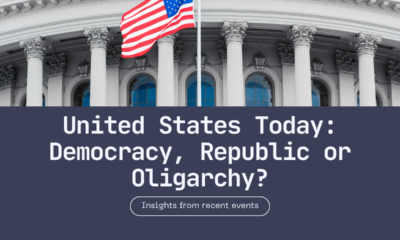Constitution
Suspend elections? Seriously?

A Democratic State governor actually suggested that Congress suspend elections for a full term. And no, she was not joking.
Suspend elections? The evidence
Governor Beverly Perdue (D-NC) started the furor yesterday, when she said:
I think we ought to suspend elections for Congress for two years and just tell them we won’t hold it against them, whatever decisions they make, to just let them help this country recover.
True enough, she used the word perhaps to break up that phrase. But she still uttered it. A reporter from the Raleigh News and Observer heard her.
Hours later, her aide said that she was joking. But The Daily Caller picked the story up later that day. Then this morning, the DC published this piece, with an actual soundtrack of Gov. Perdue’s remarks. Her deadpan delivery clearly shows that she was not joking. (See also this piece at Fox News Channel.)
James Taranto at The Wall Street Journal suggested that Gov. Perdue is not the only one. Nor does the left limit its disdain for democracy to the US Congress alone.
Where did this come from?
Republicans brought this on themselves, by agreeing to “super-committees” and “blue-ribbon panels.” They have done this for decades. When elected officials avoid the issue, they lend credence to people who want unelected officials to make the decisions. Whether that unelected official is a judge, a “super-committeeman,” or a blue-ribbon commissioner, is irrelevant. What’s relevant is that we have a republic, and its institutions must be accountable to the people. When we rely on special unaccountable decision makers, we show contempt for the electoral process. That the enemies of freedom would seize upon that showing of contempt, should surprise no one.
Terry A. Hurlbut has been a student of politics, philosophy, and science for more than 35 years. He is a graduate of Yale College and has served as a physician-level laboratory administrator in a 250-bed community hospital. He also is a serious student of the Bible, is conversant in its two primary original languages, and has followed the creation-science movement closely since 1993.
-

 Executive4 days ago
Executive4 days agoSecret Service chief gets no solace
-

 Executive3 days ago
Executive3 days agoWaste of the Day: Louisville Taxpayers Pay Nearly $600,000 For Empty Building’s Maintenance, Security
-

 Guest Columns4 days ago
Guest Columns4 days agoFear Itself: Democrats’ Favorite Strategy Caused Their Current Chaos
-

 Executive3 days ago
Executive3 days agoWhere is Joe Biden – or Jill?
-

 Executive1 day ago
Executive1 day agoWaste of the Day: Throwback Thursday: Cities Used Crime Prevention Funds on Soccer Games, Paper Shredding
-

 Executive2 days ago
Executive2 days agoFacile and politically motivated suggestions
-

 Civilization4 days ago
Civilization4 days agoBuild Iron Dome in the United States To Prepare for Israel’s Worst Day
-

 Executive4 days ago
Executive4 days agoThe Emerging GOP Plan To Beat Kamala Harris
















I think longer terms would accomplish the same thing without the bitter flavor of dictatorship.
Now that’s exactly why some of us want terms-of-office limited.
Yes, I definitely understand the desire to limit terms of office. Career politicians seem to be only concerned with winning the next election.
I think that perhaps longer terms and implementing term limits would help to remedy the problem of politicians being, well, political.
While you may not appreciate this example as I do (you being a conservative, I imagine you don’t find Democrat successes particularly pleasing), I recall the lame-duck session of 2010 where the Democrats passed several bills only after the elections (where they were crushed). Without the concern for reelection office holders can focus on doing their job instead of keeping their job. That said, I don’t quite know how accountability would be preserved in these longer terms, election results also being a factor in getting politicians to behave.
By the way, I’m glad you approved this last post of mine. I really think we can hold some interesting discussions here.
Just for the record: the only thing that Democrats succeed in doing, long-term, is taking the people’s liberties away from them. And here I refer to the liberties that matter most—those that will put food on their tables and let them choose what sort of food to put on those tables.
Terry wrote:
“Whether that unelected official is a judge, a “super-committeeman,” or a blue-ribbon commissioner, is irrelevant.”
Geno points out:
Actually, the “super committee” is made up of elected officials. It is, in fact, a congressional committee formed for a specific purpose.
Oh yeah…. I agree on the idea of term limits. The idea of the Founding Fathers was that the congress would be made up of citizens who would serve for a few years then return to their private lives…. not professional politicians. (Though it didn’t take long for professional politicians to show up.)
But those super-committeemen are not actually performing like Congressmen. They were never elected to “at-large” positions, which is what the super-committee is. They were elected to represent their respective States and districts. This “super-committee” assignment takes them beyond the reach of their electoral mandate.
Terry says:
This “super-committee” assignment takes them beyond the reach of their electoral mandate.
Geno answers:
You are probably right in that members of congress are elected to represent specific districts/states. However, as a practical matter, there is no way each congress member could make an informed vote on every proposal that is introduced in congress. Therefore, congressional committes perform a useful purpose. Atricle I Section 5 of the Constitution states: “Each House may determine the Rules of its Proceedings.” This provides the authority for congress to establish committees.
If enough Congressmen had “read the bill,” they might never have passed a bill that is unconstitutional on fifteen counts.
Terry claims:
If enough Congressmen had “read the bill,” they might never have passed a bill that is unconstitutional on fifteen counts.
Geno answers:
While I agree that Pelozi’s “vote now, read later” edict is more than a little authoritarian and makes for horrible government, there is no constitutional requirement a member of congress read a bill before voting on it.
(Note: I’d be inclined to vote out any representative of mine I found was voting on bills without knowing the full contents of them.)
Both chambers routinely work in committees that examine issues and determine whether and how certain things reach the floor. Is the House Armed Services Committee unconstitutional because its members review and comment on issues outside their districts?
I’ve heard criticism of the supercommittee on other grounds, but I’m not sure I understand your ‘at-large’ logic.
I think you are missing the point. Congress and the House of Representatives seem paralyzed to make a decision that might affect their ability to be re-elected. They do nothing instead and then talk about government shutdown. If there was a longer period between elections they wouldn’t have to worry about re-election campaigns and might actually get something done.
That’s no excuse. The remedy is for the people to realize that the government is no longer sustainable, and that we must abolish large chunks of it to get out of the debt hole. Beverly Perdue’s solution is to freeze a permanent class in place. And do you think for one second that she would talk of suspending elections if Republicans controlled the Senate as well as the House?
“Beverly Perdue’s solution is to freeze a permanent class in place.”
Well, no, it isn’t. Even if you insist on taking her literally, and refuse to acknowledge that she might have been employing hyperbole to express frustration with partisan bickering (as the context suggests), her comment was that the elections should be suspended for two years for the specific purpose of hammering out a solution to the debt crisis.
With the exception of the American newt (with a three-year lifespan), two years is not ‘permanent’ to most vertebrates of North America.
[…] weekend, speaking at the Reagan Library in California. Making the core of his speech the virtues of Chris Christie to get into the presidential race. Or not. I am told not to expect any announcement t…he's thinking about getting into the presidential race to an audience literally begging him to […]
Term limits were once a good idea; the result now would
only manifest in more opulent payoffs from lobbyist.